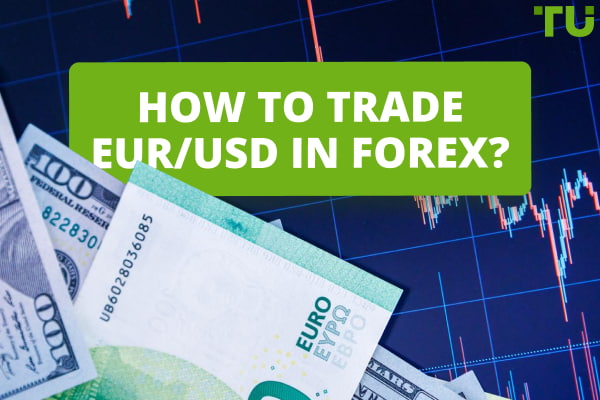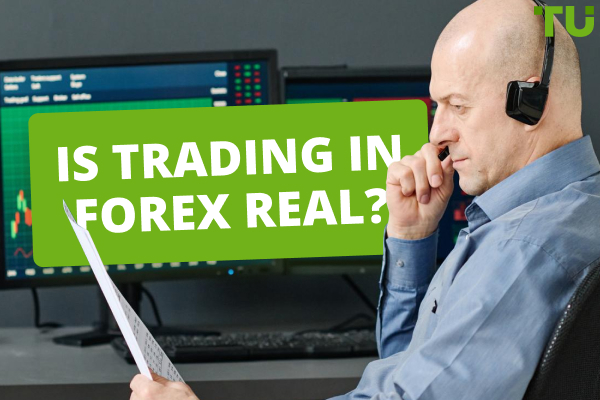Transaction duration – 1-5 minutes. When scalpers catch trends, they can hold the transaction for longer until they squeeze the maximum out of it.
Scalping - What Is Scalping in Forex Trading?
Scalping, or high-frequency trading, is one of the most popular trading methods with hundreds of strategies. It is often chosen by beginner traders because while using it you can make money in just a few minutes. Professionals manage to open dozens of transactions in both directions at moments of fundamental volatility. Scalping is also effective in tranquil market activity when other strategies do not work. Would you like to learn how to make money using scalping strategies? Then keep on reading.
Scalping - What Is Scalping in Forex Trading?
Market scalping, or high-frequency trading, is a type of intraday trading system that uses the short-term opening of transactions with a target profit of several points. A professional scalper can keep transactions in the market for several minutes, closing the trade when a profit of several pips is reached.
Characteristics of professional Forex scalping:
-
-
Earnings – several pips.
-
Trading in one click and no stops. It’s a personal matter for everyone whether to use stops or not. But in scalping strategies, speed is important, because sometimes there is no time to set stops and take-profits. Transactions are made using the quick access panel in a single click.
-
ECN-accounts. The scalper is interested in the minimum market spread and instant execution of orders. This combination is only possible with ECN accounts.
-
Timeframe. Trading is carried out in short intervals - most often M1-M5, larger intervals are used for preliminary analysis.
-
Maximum leverage. It allows you to reduce the level of collateral.
A distinctive feature of scalping is the short trade time in the market. A trader can open a series of transactions in a row or place a grid of pending orders at a short distance from each other. The key to the success of a scalping strategy is to catch the right moment with respect to predictable volatility.
Best 1 Minute Scalping Strategies for beginnerTypes of Scalping Best Trading Platform
-
It envisages opening short-term transactions with increased volatility at the time of a relevant news release. It provides for two behavior options:
● placing pending orders in both directions at a short distance from the current price a few minutes before the news release and deleting a failed order;
● opening a series of short-term positions in the direction of price movement a few minutes after the news was released.
-
Classification depending on your selected time interval:
● Pipsing. It is intensive trading with a target profit of 2-3 pips barely covering the spread;
● Medium-term trade. The transaction can be held in the market for 5-15 minutes (2-5 candles);
● Conservative trade. Interval is М15, the trade can be held in the market for more than 2 candles.
-
Classification based on the trading tactics you choose:
● Trading on several timeframes. The problem of inconsistent signals on short intervals is solved by analyzing the trend on larger timeframes. For example, on H1 there is a clear trend, on M15 transactions with a length of 4 candles are opened;
● Trading on correlated assets. One news item can affect several currency pairs at the same time. But it happens with a lag due to differences in the level of liquidity. The main pair is called the “guide”. The scalper is guided by it when opening a transaction on a lagging asset. The strategy works perfectly on cross-rates;
● Intuitive scalping method or trading by intuition and experience, without the use of technical analysis to save time.
Pros and Cons of Scalping Strategies
👍 Scalping advantages:
• High frequency of signals. Scalpers open several dozen transactions per day, while intraday traders can wait for one signal for several hours.
• Fast earnings. High-frequency trading allows you to make profits within minutes.
• Efficiency of trading by fundamental analysis. At the time of the release of news and statistics, the market is experiencing increased volatility. And while other traders place pending orders and try to determine the direction of the trend, scalpers make money on fluctuations in quotations.
• Trade in the flat. What the intraday trader on the hourly timeframe will call flat, the scalper on the M5-M15 interval will call bilateral volatility. Scalpers squeeze profit out of any move.
• A small deposit to start. The high speed of transactions allows you to accelerate the deposit. Short stops satisfy the broker’s margin requirement, so a trader can open more transactions within the framework of risk management rules than in intraday trading.
• No swap charges.
Another advantage of high-frequency trading is that it is good for learning. As it sharpens your reactions, develops intuition, and teaches you to understand the nature of the market. After that, intraday and long-term tactics will seem easier.
Scalping strategies are ideally combined with long-term or intraday tactics. While the traders are waiting for a signal to appear on long timeframes, by setting alerts (notifications if the specified conditions are met), they earn on short moves.
👎 Scalping disadvantages:
• Small earnings from one transaction. If the target profit level in intraday strategies is 20-30 points, then scalpers close transactions having earned only 3-5 points. To reach the desired profitability, a trader has to open several dozen transactions per day.
• Impact of price noise. Chaotic unpredictable price movement is often observed on short timeframes. It complicates the application of technical indicators.
• Market makers’ influence. Large capital gives preference to quick short-term earnings. With large volumes of orders, they turn the price in the direction they need in the short term. Therefore, there is the belief that technical analysis is less effective and gives more false signals on short timeframes.
• Redrawing of indicators. During long intervals, in case of redrawing, the trader has time to find confirmation of the signal. In Forex scalping strategies there is no time for deep analysis, therefore, the number of unprofitable transactions increases.
• Psychological stress. A trader must constantly look for signals, monitor opened transactions, and quickly react to any market changes. All this is causing nervous and vision stress. If the intraday trader can afford to move away from the computer, then the scalper cannot.
• Technical limitations. The highest possible speed of order execution and a high-speed internet connection are critical.
• Slippage. This happens when the transaction opens and/or closes at a worse price than the trader expected. There are many reasons: high volatility, server delays in signal transmission, etc. In scalping strategies, where every fraction of a second is important, this moment is crucial.
There are cases when brokers limit the possibility of using scalping tactics by setting the minimum time for a transaction in the market. A transaction must be opened for at least 1-2 minutes. This is because frequent requests to open and/or close transactions and the use of algorithmic systems overload the server, slowing digital traffic down. This is one of the signs of a bucket shop. ECN brokers do not place restrictions on the strategies applied.
General Recommendations for the Development of Scalping Trading Systems
The development of a trading system is an individual matter. Do not expect that by taking a strategy from the internet, you will immediately find out the secret of scalping and start making millions. You can understand how this tactic works as well as develop a comfortable pace and method of trading only through your own hard-earned experience. We will tell you what you should pay attention to.

Criteria for choosing tools for effective scalping. Although scalping strategies are considered universal, it all depends on the profit margin. Therefore, we recommend paying attention to the following points:
-
Volatility or the amplitude of price movement.
Since the trader’s task is to catch any strong short-term movements in both directions, the scalper will be primarily interested in tools with high volatility. That is, those with the highest average daily volatility, and those that are most sensitive to market news. Volatility calculators will help you find such scalping tools. For example, a calculator on the Investing analytical portal shows data for several dozen currency pairs at different time periods.
-
Spread size.
The trading costs, or spreads, eat up most of the profits of scalpers. The more liquid the tool is, the higher the turnovers and trading volumes it has, the smaller the spread is. Therefore, scalpers prefer to choose only ECN accounts with instant order execution up to 100 ms with a floating spread from 0.0 pips. You can find an updated comparison table of different brokers on the monitoring site MyFxBook. Though, you have to take into account that this table is not 100% accurate.
-
Liquidity.
The speed of buying/selling an asset. The more traders are willing to make a transaction, the smaller the spread will be and the more attractive a liquid scalping tool is.
What are the Best Currency Pairs for Scalping?
The main requirements for currency pairs are high liquidity and volatility, which depend not only on the fundamental factors but also on the trading session:
-
EUR/USD, USD/CAD, AUD/USD pairs are suitable for night scalping. You can try to make money on combinations with JPY, the Japanese yen is most active in the Asian session;
-
for beginners, it is worth trying scalping with the classic EUR/USD, GBP/USD pairs, which are among the most liquid ones.
Scalping in the stock market is disadvantageous due to exchange and depository costs, as well as relatively little volatility.
Top 5 Forex Brokers for Scalping in 2024
Trading in the Forex market involves certain financial risks, and when scalping, these risks increase. We recommend working only with reliable Forex brokers. The following is a list of the highest-rated brokers who are the best to use when scalping. They are also the most popular Forex brokers used by traders for scalping.
| Broker | Regulation | Minimum Deposit | Account Types | Surcharge from Traders Union |
|---|---|---|---|---|
| Roboforex | Regulation: IFSC | Minimum Deposit: $10 | Account Types: Demo, Pro-Cent, Pro-Standard, ECN, Prime, R Trader, Islamic accounts | Surcharge from TU: 80% of affiliate payout |
| Exness | Regulation: CySEC | Minimum Deposit: $1 | Account Types: Demo, Standard Cent, Standard, Standard Plus, Raw Spread, Zero, Pro | Surcharge from TU: 80% of affiliate payout |
| Tickmill | Regulation: FSA, FCA, CySEC | Minimum Deposit: $25 | Account Types: Classic, Pro, VIP, Demo | Surcharge from TU: 80% of affiliate payout |
| FXCM | Regulation: FSA | Minimum Deposit: $500 | Account Types: Demo, Mini, Standard, Active Trader | Surcharge from TU: 80% of affiliate payout |
| Instaforex | Regulation: FFMS, BVI FSC | Minimum Deposit: $1 | Account Types: Demo, Insta.Standard, Insta.Eurica, Cent.Standard, Cent.Eurica | Surcharge from TU: 80% of affiliate payout |
How Much Can you Earn on Scalping?
There is no exact answer. The amount of earnings depends solely on the number of transactions opened by the traders, their time in the market, and their performance. To calculate the profitability of scalping, create a table in Excel. Start with the following parameters:
-
volume of the transaction. It affects the value of a point. For example, if you open a trade of 1 lot on the EUR/USD pair (and you probably used leverage), then 1 pip will be equal to 10 USD;
-
target level of profit. Usually, scalpers are content with 3-5 points. But if you see that you have caught the trend, do not rush to close a profitable transaction;
-
risk level. Do not forget to follow the rules of risk management, otherwise, trades can be closed by stop-out.
You might earn 20% per annum or as much as 100%. There is no upper limit. Scalping tactics are just one of the options for trading strategies, the effectiveness of which depends solely on your skills and knowledge. A few tips for those looking to grow their profits:
-
Hone your scalping strategies on a demo until they become second nature to you. Experiment with as many indicators as possible. Find a combination of tools that will perfectly match your trading style. Remember: it’s not your profit that matters, but your psychological comfort. Trading should be challenging but fun.
-
Test and optimize your strategy. Run your trading method and strategy through the MT4 tester with regard to the history of quotations, so you can see how effective it is and how long it takes to earn the target profit level.
-
Be flexible. Get the most out of the market, don’t be afraid to reevaluate your strategy along the way.

NB!
You can reduce trading costs, and therefore increase the number of profitable trades, using the free service of partial compensation of the spread. To do this, you need to choose a rebate service (for example, Traders Union), go through the free registration and open an account with any broker from the ratings list on the affiliate link. Compensation can be up to more than 50% of the spread. One more time: the spread compensation service is completely free!

Are Scalping Tickets Legal?
Scalping, as a trading strategy, is legal and allowed on Forex if the broker provides optimal trading conditions for scalping, such as a proper spread size, fast trade settlement, no requotes or slippage, the ability to monitor current quotes in real-time, etc. Also, the broker must not bar the use of this trading strategy in its terms and conditions. In the absence of restrictions, a trader may employ scalping in the course of his work in the foreign exchange, stock, or commodity markets to make a profit on short-term trades.
But it should be noted that sometimes scalping can be used to manipulate the market. In this case, the use of this trading strategy becomes illegal.
Scalping is mostly used in two scenarios:
-
Making a profit on small price gaps legally is a classic form of a scalping strategy.
-
Implementing a fraudulent scheme to manipulate the market is illegal and is punishable under US law.
In the first variant, scalping (pipsing) is used to make a small profit in a short period. This trading strategy involves the execution of many trades for the purchase or sale of an asset within a trading day, which requires a trader to pay great attention and to quickly react to changes in the market, especially in times of increased liquidity. Scalping can be either manual or automated.
The legality of scalping is often discussed from a local perspective, i.e., when working in a specific brokerage company. For example, if a broker allows scalping with the help of advisors and, at the same time, its regulations do not restrict the trader from performing trading operations, then the use of scalping on the accounts of such a broker is legal.
The opposite is true if the broker prohibits the use of trading robots and pips for making small trades in a short period. In such an event, the trader can be suspended from work, and/or his trades and personal account may be blocked.
A fraudulent scheme for implementing a scalping strategy implies abuse by a trader or a group of traders on the Forex market. This is done by the creation of false signals for the manipulation of supply and demand for an asset. This often is a result of actions that interfere with the normal functioning of the market and mislead all its participants.
Many fraudulent schemes have been discovered where unscrupulous traders and brokers have manipulated the market. Consider the following schemes that constitute illegal scalping:
-
Front-running scheme.
Here, a trader uses someone else's large order to make a profit when the price bounces. Previously, this trading method was legal, but due to numerous manipulations by both traders and brokers, the US Securities and Exchange Commission (SEC) found this trading scheme illegal. The scheme went like this: the broker received an application from a trader who received a recommendation from an investment advisor to buy an asset. The broker bought the asset independently which influenced its value when the broker next sold the gambit to a trader.
-
Whipping scheme.
One trader places multiple orders to buy and sell an asset at nearly the same price, thereby artificially inflating the price of an asset.
-
Intermarket manipulations scheme.
Under this artifice, a trader makes trading operations in one market to affect the price of an asset in another market and makes a profit by artificially creating the effect of price movement.
Many developed countries of the world are passing special bills that exclude the possibility of abuse and market manipulation. For example, the front-running scheme was found to be fraudulent under the USA’s Stock Exchange Act of 1934, Rule 10b-5.
To apply the scalping strategy in the trading process successfully, financial experts recommend that you study the rules for performing trading operations of the selected broker in detail and focus on making a profit honestly and avoiding schemes that can be regarded as manipulative.
Forex Scalping Strategy — the Bali Strategy (for example)
One of the most popular scalping strategies without indicators is the Sniper. It is based on the Price Action method, i.e., pattern trading. For beginners, it may seem complicated, therefore we will give an example of the Bali strategy, which is a popular but simple indicator strategy.
It is a well-used, albeit non-standard, strategy that has common features of both intraday and scalping tactics. With a target profit level of 15-20 points, short stops are placed here. Timeframe: up to M30.
-
Indicators:
● LWMA (48). One of the variations of linear-weighted moving average acts as a confirmation signal. With Bali, only its location relative to the price is important.
● Trend envelopes (2). It is also based on the moving average formula. But it differs from them in the method of construction. When the price breaks through its line, it changes color and location.
● DSS of momentum (18, 6, 3, 8). It is an oscillator that eliminates the problem with the above indicators lagging.
These indicators are not included in the basics of MT4. If you have questions regarding how to install them or you did not find an explanation, write a comment and Traders Union will help you.
-
Conditions for opening a long position:
● The yellow line on Trend Envelopes breaks through the price (purple ovals) and changes its position relative to the price with a color change.
● The candlestick signal closes above the LWMA (the LWMA line is red, the arrow points to the candlestick signal).
● DSS of momentum: the green line is above the dashed signal line.

On the next candlestick after the signal one, we open a trade with a stop up to 10 points (or at a level slightly below the local minimum) and take a profit of 15-20 points.
-
Conditions for opening a short position:
● The blue trend envelopes line breaks through the price and changes its position relative to the price with a color change.
● The candlestick signal closes below the LWMA (the LWMA line is red, the arrow points to the candlestick signal).
● DSS of momentum: the yellow line is below the dashed signal line.

The condition for opening a transaction is similar. With strict adherence to the recommendations, the number of successful signals is more than 75%. Transactions are closed when the trend direction changes or by taking your profit.
Conclusion on Scalping in Forex Trading

Forex scalping is a trading system for those who know how to quickly navigate the market, can instantly react to changes, is psychologically balanced, and is stress-tolerant. The key to success is patience, reaction speed, and the ability to be persistent. The scalpers are not chasing quick profits, they gradually, bit by bit, increase the deposit. Such trading systems are not recommended for beginners. However, it is worth practicing your skills on a demo account.
Have a nice trading day!
FAQs

What is the meaning of scalping in trading?
Scalping is a Forex trading strategy during which you can carry out many short-term transactions within a single trading day. This strategy allows traders to make trades that last for only a few minutes, and the profit for these trades may be only a few points.

What is the main difference between scalping and other Forex trading methods?
The distinguishing feature of scalping is the short duration of each transaction. The main aim of the Forex scalping strategies is to make a profit by catching the proper moment to open and close a trading position.

How to choose a good Forex broker for scalping?
To do this, just check out the list of the best Forex scalping brokers. This rate was compiled by the Traders Union financial experts and it includes exactly those brokers who allow this trading strategy.
Glossary for novice traders
-
1
Scalping
Scalping in trading is a strategy where traders aim to make quick, small profits by executing numerous short-term trades within seconds or minutes, capitalizing on minor price fluctuations.
-
2
Trading
Trading involves the act of buying and selling financial assets like stocks, currencies, or commodities with the intention of profiting from market price fluctuations. Traders employ various strategies, analysis techniques, and risk management practices to make informed decisions and optimize their chances of success in the financial markets.
-
3
Broker
A broker is a legal entity or individual that performs as an intermediary when making trades in the financial markets. Private investors cannot trade without a broker, since only brokers can execute trades on the exchanges.
-
4
Volatility
Volatility refers to the degree of variation or fluctuation in the price or value of a financial asset, such as stocks, bonds, or cryptocurrencies, over a period of time. Higher volatility indicates that an asset's price is experiencing more significant and rapid price swings, while lower volatility suggests relatively stable and gradual price movements.
-
5
Forex Trading
Forex trading, short for foreign exchange trading, is the practice of buying and selling currencies in the global foreign exchange market with the aim of profiting from fluctuations in exchange rates. Traders speculate on whether one currency will rise or fall in value relative to another currency and make trading decisions accordingly.
Team that worked on the article
Peter Emmanuel Chijioke is a professional personal finance, Forex, crypto, blockchain, NFT, and Web3 writer and a contributor to the Traders Union website. As a computer science graduate with a robust background in programming, machine learning, and blockchain technology, he possesses a comprehensive understanding of software, technologies, cryptocurrency, and Forex trading.
Having skills in blockchain technology and over 7 years of experience in crafting technical articles on trading, software, and personal finance, he brings a unique blend of theoretical knowledge and practical expertise to the table. His skill set encompasses a diverse range of personal finance technologies and industries, making him a valuable asset to any team or project focused on innovative solutions, personal finance, and investing technologies.
Dr. BJ Johnson is a PhD in English Language and an editor with over 15 years of experience. He earned his degree in English Language in the U.S and the UK. In 2020, Dr. Johnson joined the Traders Union team. Since then, he has created over 100 exclusive articles and edited over 300 articles of other authors.
Mirjan Hipolito is a journalist and news editor at Traders Union. She is an expert crypto writer with five years of experience in the financial markets. Her specialties are daily market news, price predictions, and Initial Coin Offerings (ICO).


















